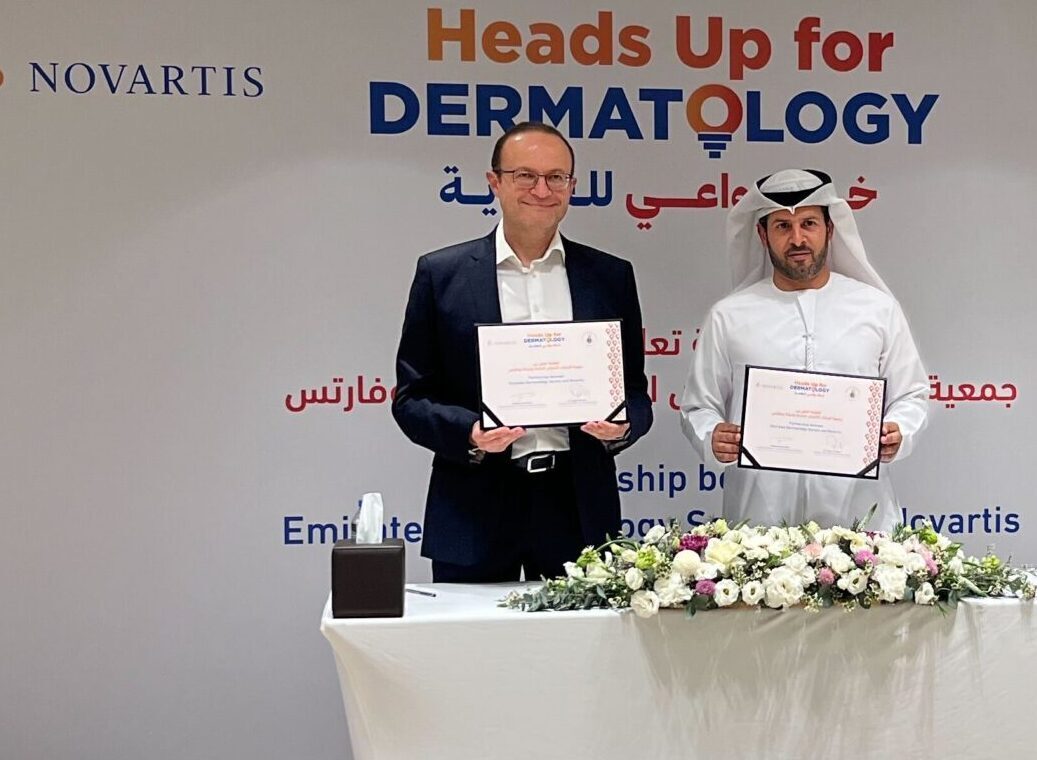CIRCUIT Q&A
Novartis seeks to close gap with U.S. in Gulf drug approvals

Mohamed Ezz Eldin, Head of Novartis’s Gulf operations (left), with Dr. Ayman Al Naeem, Vice President of the Emirates Dermatology Society(Omnia Al Desoukie)
Novartis, Europe’s second-largest drugmaker, is seeking to obtain broader rights from regulators to sell its newest medicines in the UAE and neighboring Gulf countries as soon as they are approved in the U.S.Mohamed Ezz Eldin, a 25-year Novartis veteran...











